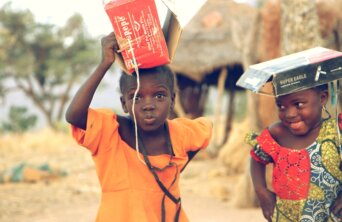- About
- Topics
- Picks
- Audio
- Story
- In-Depth
- Opinion
- News
- Donate
- Signup for our newsletterOur Editors' Best Picks.Send
Read, Debate: Engage.
| topic: | Women's rights |
|---|---|
| located: | Nigeria |
| editor: | Bob Koigi |
In recent years, climate change has emerged as a defining issue for global justice, impacting every corner of the world. Climate change lawsuits have become a significant tool for advancing climate justice in Africa, a continent highly vulnerable to climate impacts. These legal battles are increasingly enhancing women’s access to climate justice, empowering them to address the disproportionate effects they face due to environmental degradation.
In Africa, women, particularly in rural areas, often bear the brunt of climate change impacts due to their roles in agriculture, water collection, and household management. They are also frequently marginalised in decision-making processes related to climate adaptation and mitigation.
South Africa’s Groundwork NGO, supported by local communities, has filed several lawsuits against government and corporate entities for failing to address climate change and its impacts. Women in South Africa, particularly in vulnerable communities, have been actively involved in these legal battles.
One notable case involved a lawsuit against the government for its lack of action on air pollution and its impact on climate change. The legal victory in this case not only led to stricter regulations but also facilitated greater participation of women in environmental decision-making processes. The case highlighted the connection between gender, environmental degradation, and health, pushing for policies that consider women’s needs and perspectives.
In Nigeria, the Ogoni people, including women, have long been engaged in legal and advocacy efforts against the environmental degradation caused by oil exploitation. The case of the Ogoni Nine, where activists faced persecution for their fight against environmental destruction, underscored the broader struggle for climate justice.
Recent legal efforts have focused on holding the Nigerian government and oil companies accountable for environmental damage. Women have played a crucial role in these efforts, organising protests and advocating for reparations. The lawsuits and international pressure have led to increased attention to the environmental and social impacts of oil extraction, including the need for gender-sensitive solutions.
To enhance women’s access to climate justice, it is essential to increase their legal empowerment. This involves providing legal education and support to women, particularly in rural and marginalised communities, enabling them to participate more effectively in climate-related lawsuits.
Climate policies and litigation should recognise women’s unique vulnerabilities and contributions to climate adaptation and mitigation strategies and ensure that legal outcomes benefit women equitably.
It is crucial to support grassroots movements and local women’s organisations in their climate justice efforts. These organisations often have the best understanding of regional impacts and solutions, and empowering them can lead to more effective and sustainable outcomes.
As these legal battles progress, they offer hope for a future where climate justice is accessible to all, regardless of gender or socio-economic status.
Image by Rapheal Nathaniel.

